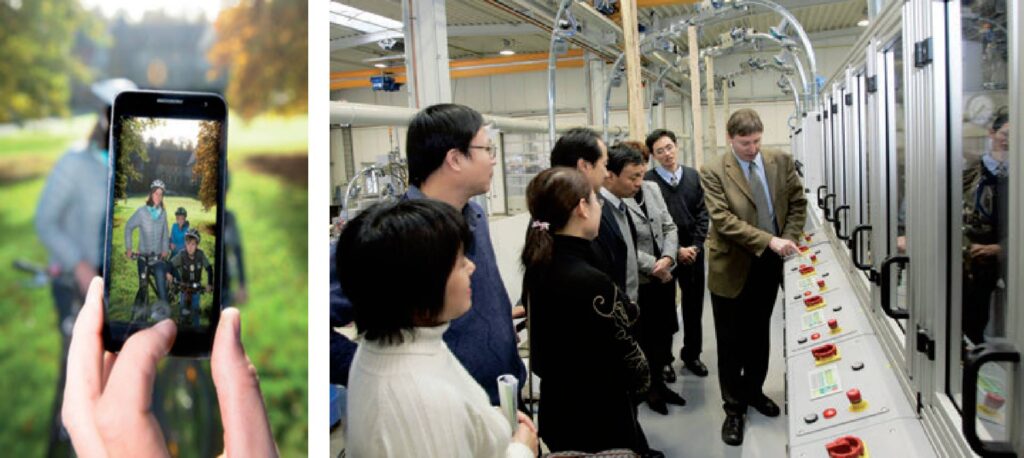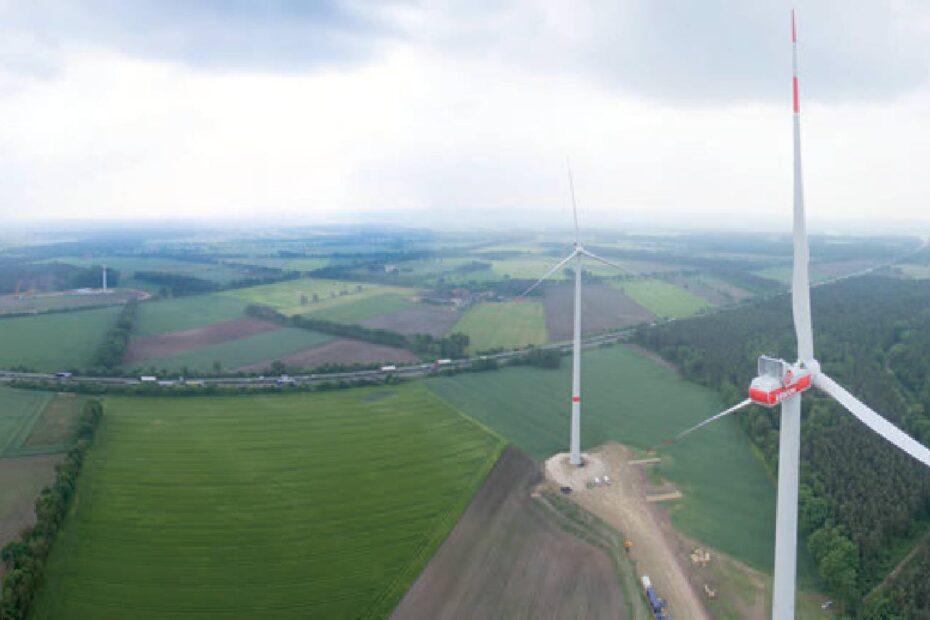Whether the focus is on the inexorable increase in digitalisation or the need to promote climate protection, Osnabrück and the regional economy are facing major challenges that have to be dealt with on a local scale, today and also tomorrow. Wide-spread provision of broadband services is not the only thing to be of huge significance for the economic and social future of the region. Appropriate ecological and economic measures by the district also make a contribution to climate protection and relieve the burden on companies, where rising energy prices are an increasingly important economic factor.
When it comes to digitalisation, the district took early steps to set its course for the future: after all, a high-speed internet connection is crucial for the development of extensive areas such as the Osnabrück District, and an important factor in favour of the location. To safeguard the necessary bandwidth as quickly as possible, the district took the digitalisation of the region into its own hands, founding its own company TELKOS in 2010.
Since then, the district has been working together in close collaboration with the 21 towns, local authorities and municipalities to intensively pursue broadband expansion. Download speeds of up to 120 megabit per second have brought the new internet age to tens of thousands of homes and companies on the outskirts of the towns and villages. Step by step, the district’s own infrastructure company is working with partners to expand provision, installing hundreds of kilometres of ducting and fibreglass cables. The volume of the first two construction phases already exceeds 70 million Euro, boosted with support from federal and state funds. A further 120 million Euro will also be invested in the years ahead.
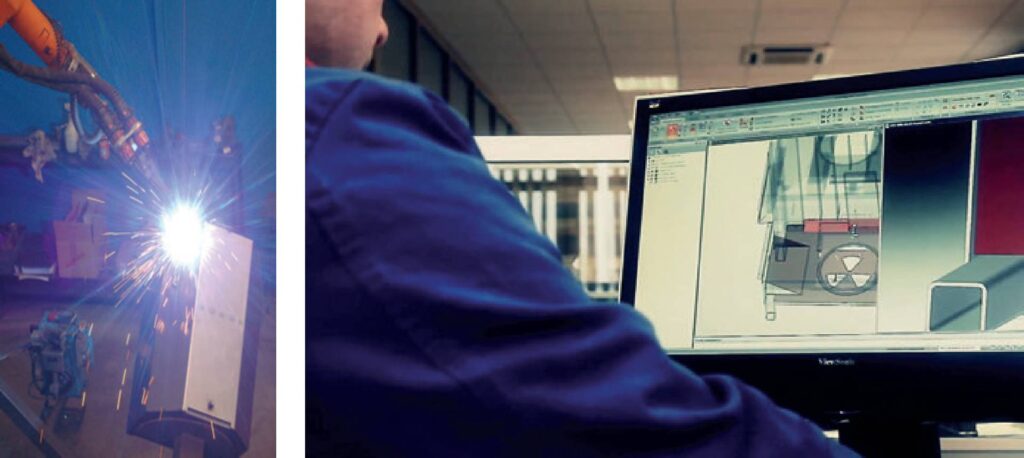
Spartherm in Melle stands for innovative firing technology, Picture: SPARTHERM Feuerungstechnik GmbH, Melle
Companies on the digital fast lane
But it is not only a fast data highway that puts companies on the fast lane. The use of new systems and technology, setting up an online shop or a digital presence on the internet presents companies with many new challenges and chances. To help firms in the region keep pace with developments, the district’s economic development agency (WIGOS) works with partners to offer corresponding advice and support. For example, companies can take up the free offer of “Digitalisation Incentive Consulting”. External experts come on site to analyse the current situation and to look at the possibilities for digital market development and process digitalisation. The companies then receive specific recommendations and information about possible funding.
Another service provided by WIGOS and the SME 4.0 Centre of Excellence Lingen to help customers get fit for the future is the “Business Model Check”. Experts take a look at the business model during an online video conference. Depending on the results, the companies can then attend workshops on customer analysis and on products and services.
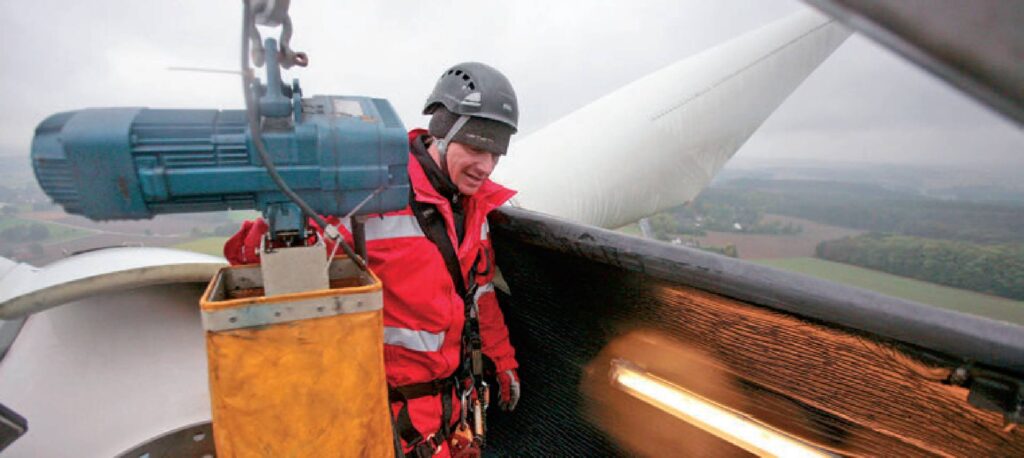
Trendsetting use of energy
Besides digitalisation, climate protection is another item right at the top of the district’s agenda. The aim is to reduce greenhouse gas emissions by 95 percent and final energy demand by 50 percent by the year 2050. To achieve this aim, the district is working with the business sector to address the challenge. After all, the companies in Osnabrück District are responsible for around 37 percent of regional energy consumption and thus incur annual costs amounting to 290 million Euro.
This significant economic factor, in conjunction with a growing awareness for climate protection issues, gave rise to a unique project. The Climate Initiative of the district and the economic development agency WIGOS have joined forces with the Centre of Excellence for Energy and Osnabrück University of Applied Sciences to launch the “Information and Planning Portal Industrial Waste Heat” project, a.k.a PInA, as a pioneering, practical approach to the use of energy. It entails the utilisation of industrial process energy.
Drying, melting, forging: industrial production processes such as these generate lots of heat that is often simply lost. When all is said and done, process heat accounts for around 57 percent of energy consumption in the commercial and industrial sector. For local authorities, “PInA” is a planning instrument for bringing together “heat givers” and “heat takers”. Companies can find out where heat is needed in the vicinity and where process heat can be fed into the system. The innovative climate protection project is already being put to successful use in industry: For example, the “District Heating Network Venne” has been implemented in Ostercappeln. The energy cooperative founded for this purpose obtains waste heat directly from Meyer wafer factory in Venne. Waste heat is an economic resource that provides heating for a nearby residential area.

Picture: Valentin Valkov/stock.adobe.com
Incentive consulting on energy efficiency and electromobility
Good advice in terms of energy efficiency, making use of solar energy and photovoltaic systems as well as natural landscaping of company premises is also made available to the region’s companies by the district’s economic development agency (WIGOS), working with partners to offer free incentive consulting sessions on these topics. The special services are well received: for example, corresponding energy efficiency consulting and subsequent modification of the firing process led to annual savings of 1,802,072 kilowatt hours of energy for roof tile factory KDW Natrup-Hagen. Furthermore, the factory’s CO₂ emissions have now also been cut by 462 tonnes each year. The company received 200,000 Euro in funds from the state of Lower Saxony for investing in resource efficiency.
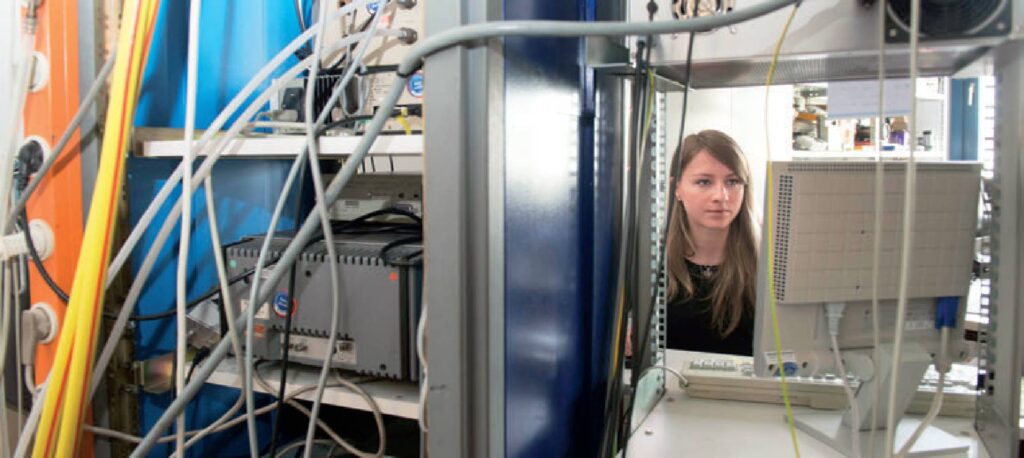
Broadband availability is an important location factor
Electromobility is another factor in sustainable emission reduction. To help the region’s business sector make the necessary transformation, WIGOS offers free incentive consulting on sustainable company mobility. Besides (electric) fleet motorisation, the consulting sessions also focus on fleet management and route planning. Services like these and the measures for climate protection and digitalisation are making the district at the Heart of Germany’s North West ready for the challenges of today and tomorrow.
